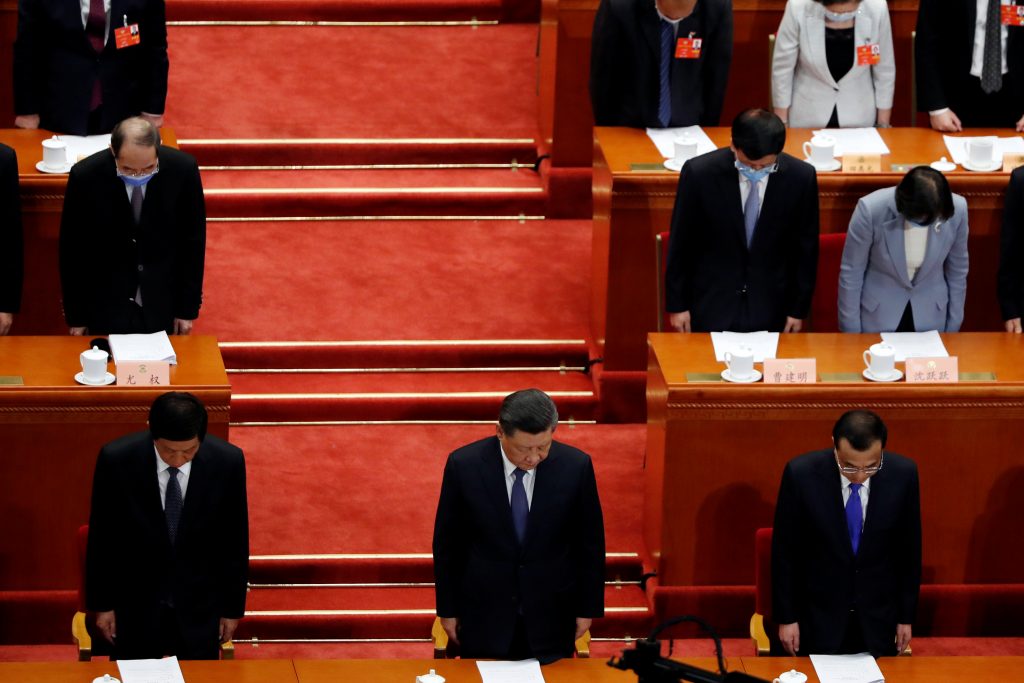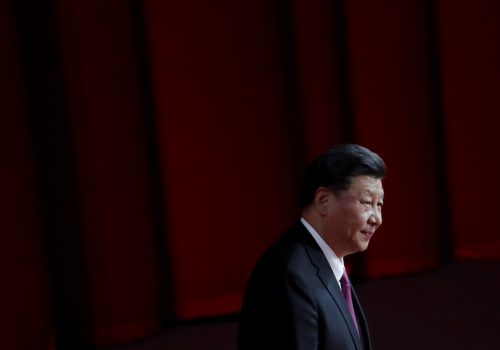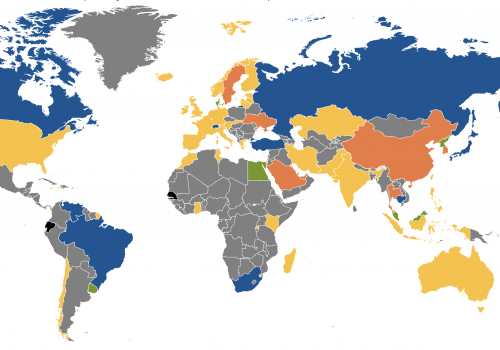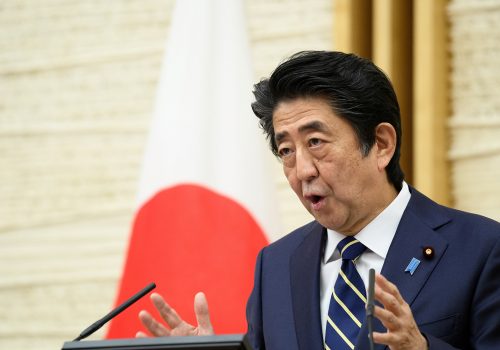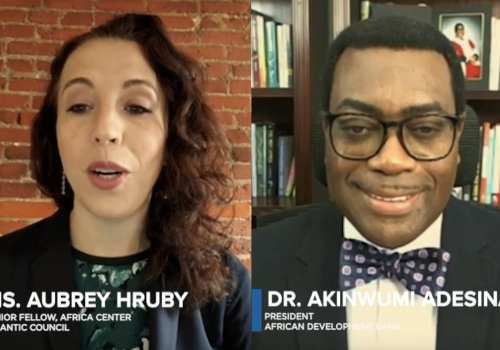This is the way new eras unfold – gradually at first and then suddenly.
Chinese President Xi Jinping’s apparent rolling of the dice on Hong Kong ahead of this week’s National People’s Congress is just one of his many calculated wagers designed to leverage COVID-19′s disruptions for greater domestic control, regional influence and global gain.
China’s move to impose new national security laws on Hong Kong, the most serious threat yet to the city’s democratic self-governance and territorial autonomy, prompted a 5.6% decline in the Hang Sang Index (its worst one-day performance in five years).
Beyond that, the decision could ignite new Hong Kong pro-democracy protests; it should raise new concerns about Taiwan’s sovereignty; it will feed the growing deterioration of U.S.-China relations; and it may contribute to anxiety among world democracies about what values a Chinese-led world order might reflect.
Seen in isolation, some analysts see the surprise Hong Kong move as reckless.
Put the decision beside other recent actions, however, and the pieces fit neatly together into President Xi’s long-standing strategic purpose: strengthening the party’s domestic hold, solidifying China’s regional power and expanding its international influence – all in a sharpening competition with the United States.
Get the Inflection Points newsletter
Subscribe to Frederick Kempe’s weekly Inflection Points column, which focuses on the global challenges facing the United States and how to best address them.
Those recent actions include, but aren’t limited to, new technology investments of an estimated 10 trillion yuan ($1.4 trillion) over six years to 2025, reports that China’s defense budget will grow by up to 9%, and its increased efforts to influence multilateral institutions as the Trump administration retreats, most recently through Beijing’s $2 billion contribution to the World Health Organization.
Most intriguing and least noticed, “China became the first major economy to conduct a real-world test of a national digital currency,” wrote Aditi Kumar and Eric Rosenbach this week in Foreign Affairs. They describe a pilot project in four large Chinese cities which the authors see as putting China years ahead of the United States in developing this “central component of a digital world economy.”
The impact of that move, over time, could have greater global impact than anything Beijing does in Hong Kong or even to Taiwan.
“U.S. policymakers are unprepared for the consequences,” Kumar and Rosenbach write. In general, digital currencies weaken the power of U.S. sanctions and the ability of U.S. officials to track illicit financial flows. More specifically, a digital yuan combined with China’s advanced electronic payment systems may provide a more effective platform for future influence than a fleet of aircraft carriers.
I argued in this space three weeks ago that President Xi and his Chinese Communist Party, by emerging as the first major world economy to end virus lockdowns and restore growth, were seizing a window of opportunity – one that could close as rapidly as it had opened.
“Great historical progress always happens after major disasters,” President Xi said recently at Xi’an Jiaotong University, telling professors and students of Chinese sacrifices of the past and the possibilities of the moment. “Our nation was steeled and grew through hardship and suffering.”
Those who wish to counter or contain President Xi’s ambitions, would do well to study their origins and the deeper meaning in his use of that carefully selected word, “steeled.” It is the same word his father, Xi Zhongzun, used to describe the impact of his time in prison.
In The New York Times this week, Steven Lee Meyers and Chris Buckley chronicle how President Xi’s father, “a famous revolutionary leader, was purged and held in solitary confinement under Mao Zedong.” President Xi as a young man grew up in the shadow of his father’s disgrace, was denounced by his own mother and then was exiled from Beijing to village labor for seven years.
It’s a matter for conjecture how this molded President Xi and resulted in his apparently unshakable party loyalty and leadership today. Whatever President Trump’s commitment to this contest and his re-election might be, he would be wise not to underestimate President Xi’s determination.
Chinese anti-U.S. rhetoric has become disturbingly blunt, particularly when directed at President Trump and Secretary of State Mike Pompeo.
Hu Xinjin, editor of the state-controlled Global Times and regarded as an unofficial government spokesman, tweeted his response to President Trump’s claim that China wanted former vice president Joe Biden to defeat him.
“On the contrary,” he said, “Chinese netizens wish for your reelection because you can make America eccentric and thus hateful for the world. You help promote unity in China and you also make intl news as fun as comedy.”
It’s the wrong question to ask whether coronavirus has rendered China a stronger or weaker player on the world stage.
It is weaker economically and reputationally, yet more determined geopolitically. It is more fragile and dangerous simultaneously. Even as Xi’s National People’s Congress ditched its growth target for the first time, with a first quarter contraction of 6.8%, it at the same time moved on Hong Kong and ratcheted up actions against “foreign influence.”
That said, America’s greatest weakness is its “Pogo problem,” referring to the often-repeated phrase from the Walt Kelly cartoon character of the 1960s, who said, “We have met the enemy and he is us.” Hard as it is to think and act for the long term in an election year, that’s precisely what the United States must do.
Here are just three suggested prongs of that strategy:
- Strategic patience and defense reform. Washington must avoid major power military conflict, even more devastating in our modern age, while robustly reasserting Asian deterrence to shore up allied confidence. This is also a good time, with defense budgets likely declining, to invest more in future technologies and divest from high-cost legacy systems that have powerful political constituencies but declining real-world value.
- Investing in American technology, infrastructure and jobs. As Stephen Hadley and Anja Manuel laid out in The Washington Post, the Trump administration should use the next stimulus package to invest in broadband, digital infrastructure, research and development, advanced semiconductors and strategic education in science, technology, engineering and mathematics.
- Embracing allies and leading multilaterally. Former Swedish Prime Minister Carl Bildt provided a glimpse of “the post-American world on full display” from this week’s annual assembly of the World Health Organization. Whatever you think of the WHO or multilateral bodies, it’s hard to see how U.S. interests are served by Bildt’s description of a more assertive and confident Beijing, an absent United States and a Europe hedging its bets to limit the multilateral damage.
These are just three potential elements of a new American approach to regain some initiative, betting over the long term on our self-correcting ability to reinvent and the inherent brittleness of autocracies.
The challenge is only partly Chinese intentions. The greater problem rests in the lack of an American strategy equal to our times.
This article originally appeared on CNBC.com
Frederick Kempe is president and chief executive officer of the Atlantic Council. You can follow him on Twitter @FredKempe.
THIS WEEK’S TOP READS
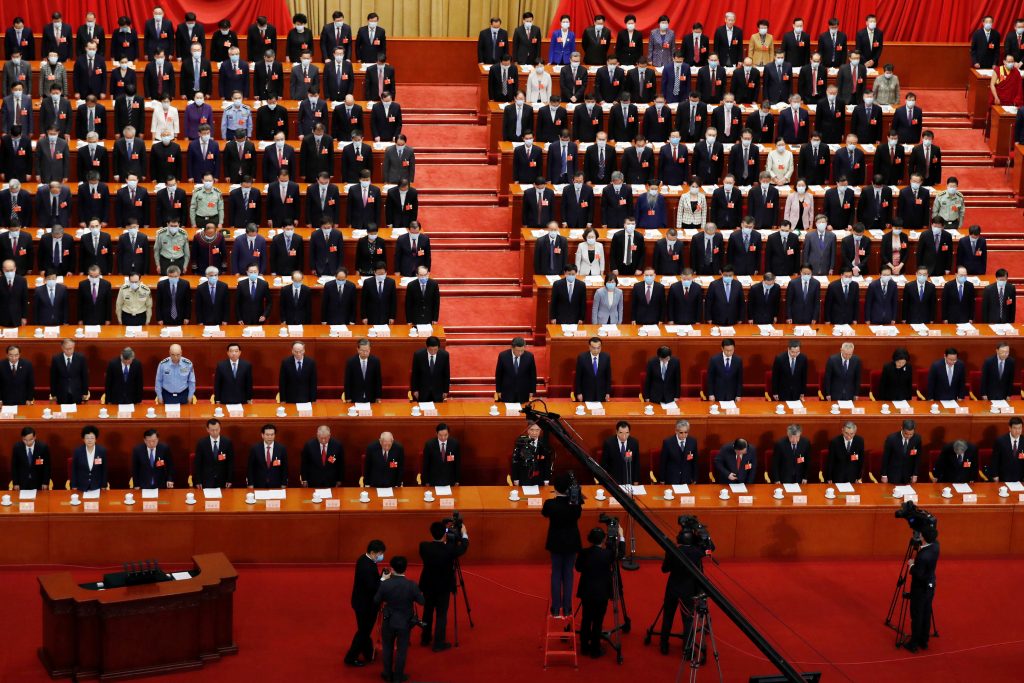
This week’s top reads focus entirely on understanding the Chinese challenge and framing U.S. responses.
In the Washington Post, former national security adviser Steve Hadley and former diplomat Anja Manuel provide an actionable agenda to use the next COVID-19 stimulus package to put “our house in order” and counter China simultaneously.
Former World Bank president Bob Zoellick issues a warning in the Wall Street Journal to “the New Cold Warriors” and an appeal to prioritize allies and America’s traditional support of individual freedoms.
Hal Brands and Jake Sullivan write a thought-provoking reflection in Foreign Policy on what responses U.S. officials may need to pursue if Beijing prioritizes global over regional hegemony – its two paths to international influence.
Aditi Kumar and Eric Rosenbach provide an example of how Beijing is pursuing precisely that global ambition by becoming the first major world economy to conduct a real-world test of a national digital currency.
Also, don’t miss Frank Fukuyama’s long-form look in the American Interest — where so much good writing and thinking is finding its way — on the unique nature of increased Chinese totalitarianism with its positive incentives and unprecedented controls.
Taken together, this week’s five top reads provide a deep-dive tutorial on the nature of the challenge and potential responses in this week of China’s National Party Congress.
#1. GETTING OUR HOUSE IN ORDER
How to use the next stimulus to counter China
Stephen J. Hadley and Anja Manuel / THE WASHINGTON POST
“With massive investments in critical technologies, China seeks to dominate the future both economically and militarily,” write former national security adviser Stephen Hadley and former U.S. diplomat Anja Manuel in The Washington Post. “To meet this challenge, the United States needs to get its house in order.”
Hadley (the executive vice chair of the Atlantic Council board) and Manuel lay out specific, actionable investments the Trump administration and Congress could make as part of the next stimulus package, complete with a manageable price tag for each of these areas.
They include investments in broadband and digital infrastructure; a substantial boost in federal research and development spending; smart R&D tax credits; support for advanced semiconductor manufacturing and strategic investments in science, tech, engineering and mathematics education.
This is the sort of specific action that begins to ensure continued American economic primacy. Read More →
#2. THE DANGER OF SELF-DECEPTION
The U.S. Doesn’t Need a New Cold War
Robert B. Zoellick / THE WALL STREET JOURNAL
It was back in 2005 that Robert Zoellick, then deputy secretary of state, gave his famous speech urging China to be a “responsible stakeholder” in the international system.
Zoellick, who served as World Bank president since then and is an Atlantic Council International Advisory Board member, this week laid out powerful arguments against what he called “the New Cold Warriors.” He said they were expunging the successes of past U.S. cooperation with China. He warned that they can’t contain China “given its ties throughout the world; other countries won’t join us.”
He argues correctly that a U.S. strategy to address the Chinese challenge must begin with our allies, with Europe’s role “especially vital.” He also believes American should “promote the cause of freedom…We want to appeal to the Chinese public, not insult them.” Read More →
#3. UNDERSTANDING CHINA’S STRATEGY
China Has Two Paths to Global Domination
Hal Brands and Jake Sullivan / FOREIGN POLICY
To address China’s challenge, the U.S. and its allies first need to understand Beijing’s strategy. Hal Brands and Jake Sullivan raise two possibilities, one that begins with regional hegemony and a second that prioritizes global hegemony.
My guess is that the United States will have to address both simultaneously. Yet it is Beijing’s global approach that has the most profound implications for American policymakers, particularly as China may be prioritizing that.
“The central premises of this alternative approach would be that economic and technological power is fundamentally more important than traditional military power in establishing global leadership,” the authors write, “and that a physical sphere of influence in East Asia is not a necessary precondition for sustaining such leadership.”
Any would-be American strategist should read this one in its entirety. Read More →
#4. DIGITAL CURRENCY DOMINANCE
Could China’s Digital Currency Unseat the Dollar? American Economic and Geopolitical Power Is at Stake
Aditi Kumar and Eric Rosenbach / FOREIGN AFFAIRS
The irony is that it was Facebook’s announcement of Libra, its nascent effort at creating a digital token, that accelerated Chinese efforts that resulted in late April in the country becoming “the first major economy to conduct a real-world test of a national digital currency.”
Authors Aditi Kumar and Eric Rosenbach write that the move “is a clear sign that China is years ahead of the United States in the development of what is likely to become a central component of a digital world economy … the United States must act now to protect its economic advantage in the coming era of national digital currencies.” Read More →
#5. TOTALITARIAN CHINA?
What Kind of Regime Does China Have?
Francis Fukuyama / THE AMERICAN INTEREST
Frank Fukuyama argued in his 1992 book, The End of History and the Last Man, that the post-Cold War global spread of liberal democracies and free-market capitalism might be the final form of human government.
He argues in The American Interest this week that the most important departure between dynastic China and the Chinese Communist Party today is an attempt “to achieve a level of totalitarian control over Chinese society of a sort that has never been attempted in previous human history.”
The other big difference is “the greater use of positive incentives” for compliance, working with the benefit of the world’s second-largest economy. “What Americans need to keep in mind is that their enemy and rival right now is not China, but a Chinese Communist Party that has shifted into high-totalitarian mode.” Read More →
QUOTE OF THE WEEK
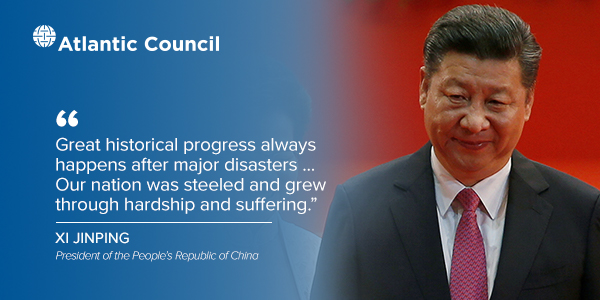
ATLANTIC COUNCIL TOP READS
Image: Chinese President Xi Jinping, Premier Li Keqiang and other officials observe a minute of silence for victims of the coronavirus disease (COVID-19) at the opening session of the Chinese People's Political Consultative Conference (CPPCC) at the Great Hall of the People in Beijing, China May 21, 2020. REUTERS/Carlos Garcia Rawlins
